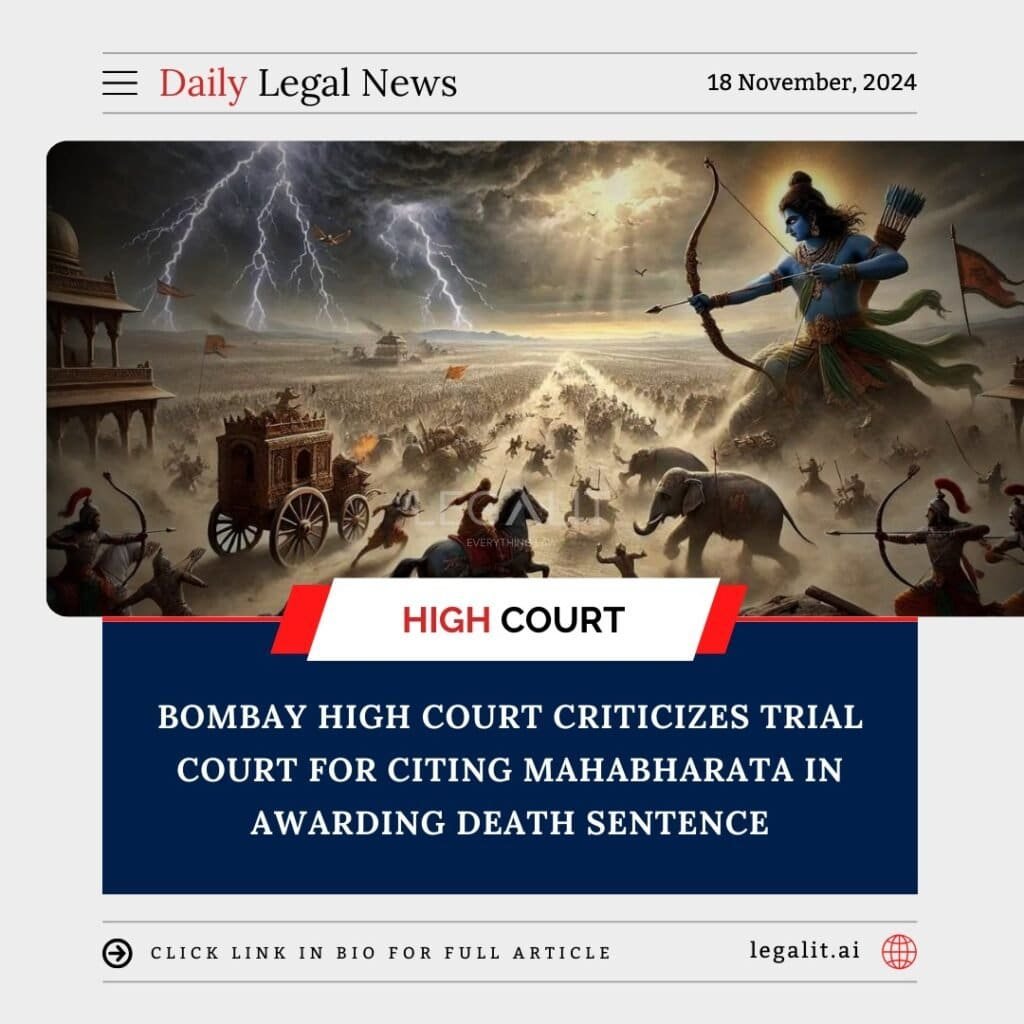
The Bombay High Court expressed disapproval of a trial court’s reliance on the ancient Indian epic Mahabharata while awarding the death penalty in a criminal case. The High Court emphasized the need for judgments to be based on constitutional principles and judicial precedents rather than religious or mythological references.
Background:
The case involved a trial court sentencing a man to death for a heinous crime. While delivering its verdict, the trial court invoked a reference to Mahabharata, citing it as a basis for supporting capital punishment. The reference raised concerns about judicial reasoning grounded in mythology, sparking criticism for deviating from established legal frameworks.
The convict appealed the decision in the Bombay High Court, arguing that the sentence was excessively severe and that the reasoning lacked a proper legal foundation.
High Court’s Observations:
- Judicial Objectivity:
The Bombay High Court highlighted that judgments, particularly in capital punishment cases, must be rooted in constitutional principles and judicial precedents. It noted that references to religious or mythological texts could lead to subjective interpretations and undermine the objectivity of judicial decisions. - Legal Framework:
The court emphasized that sentencing must adhere to the principles laid down in landmark judgments like Bachan Singh v. State of Punjab (1980), which established guidelines for awarding the death penalty, including the rarest-of-rare doctrine. - Rationale for Sentencing:
The High Court pointed out that the trial court failed to adequately analyze the mitigating and aggravating circumstances of the case. It reiterated that the focus should remain on legal reasoning rather than extralegal or cultural references. - Concerns About Precedent:
The court expressed concern that using mythology as a basis for legal reasoning could set a dangerous precedent, blurring the lines between personal beliefs and judicial impartiality.
Implications:
- Reaffirmation of Secular Judiciary: The High Court’s stance reinforces the need for a secular and impartial judiciary, ensuring that personal beliefs or cultural references do not influence legal decisions.
- Capital Punishment Scrutiny: The case underscores the rigorous scrutiny required when imposing the death penalty, highlighting the importance of objective and evidence-based reasoning.
- Judicial Accountability: The critique serves as a reminder to lower courts to maintain adherence to constitutional principles and established jurisprudence when delivering judgments.
Conclusion:
The Bombay High Court’s criticism of the trial court’s reliance on Mahabharata for awarding the death penalty underscores the importance of separating personal beliefs from judicial reasoning. By reaffirming the need for legal decisions to be grounded in constitutional principles and precedents, the court has reinforced the integrity and objectivity of the judiciary. This case serves as a crucial reminder of the judiciary’s responsibility to uphold justice through impartial and legally sound reasoning.